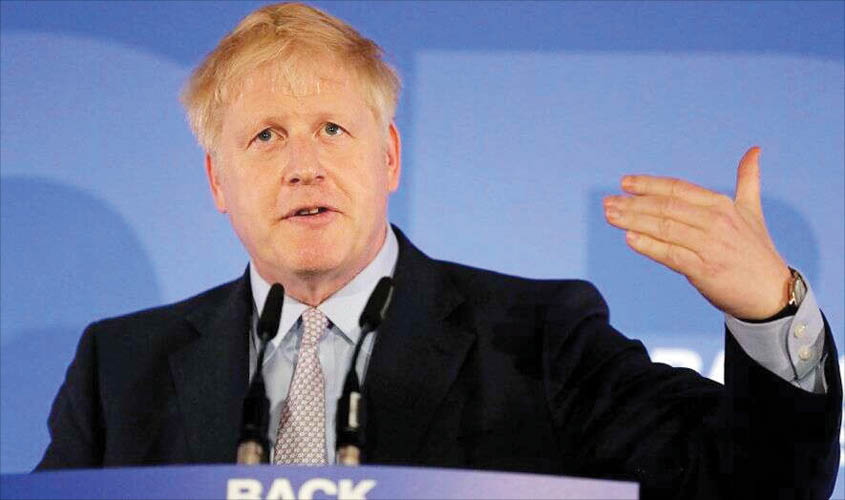The Internal Market Bill (IMB) has caused a furore, despite heavyweight judicial opposition and some parliamentary discomfort the controversial Bill was passed and moves on to the Committee Stage on 21st and 22nd, when all MP’s debate the contents of the Bill. The crux of the debate is the Bill’s legislation that has created tensions with the devolved nations of Scotland, Northern Ireland (NI) and Wales, over the state aid rules that effectively mean NI remains aligned to the EU with a border between Great Britain and NI in the Irish Sea. Some critics say this Bill is a threat to the Union, as it undermines devolution in favour of decisions taken in Westminster. The Law Society, Bar Council and many upstanding legal commentators have openly criticised two clauses they claim would give ministers the power to depart from obligations the UK has entered into via international treaties. These critics argue there are reputational and practical consequences if UK is not perceived as reliable trade partner and as a global centre for international legal practice and dispute resolution.
In August Michael Gove, announced a £650million package of investment for traders in NI and in hindsight this could have been an advance sweetener for the upcoming IMB. It is understood that the Democratic Unionist Party preparations for Brexit began with a UK-EU deal scenarioand then stopped in anticipation of a No Deal, but have now restarted for the advent of a border in the Irish Sea.
With opposition to the IMB increasing Gove admitted in the Commons Chamber on 14th, that Tory critic in chief Sir Robert Neill might be “on to something” with regards to working in a constructive spirit with the EU. Thanks to Neill’s intervention it looks like the Government will table two amendments to the IMB, the first to allow a vote before Ministers can use the “notwithstanding” powers in the IMB, the second to set clear limits on the scope and timeliness of judicial review into the exercise of these powers.
The other ongoing thorn in the government’s side is UK fisheries, the government are putting a good spin on “reclaiming British waters”, but the fishing industry fear concessions to the EU in order to break the deadlock will leave them with an acceptably small quota. The prosperity of UK coastal communities is dependent on this issue having favourable resolution, many votes are attached to this outcome.
The Lords are the next hurdle for the IMB, being full of non-Conservative lawyers, Remainers and Tory rebels, they could present an obstacle. It is being reported that if necessary the government is prepared to prorogue parliament again to pass the Bill into an Act without the Lord’s consent.
Needless to say that Nigel Farage is watching developments with a hawk eye, presently he is challenging Priti Patel on a daily basis about the slack way the Home Office are dealing with illegal migrants. This week there was a hint that Farage might return to the political fray, the Brexit Party launched a statement by Farage that ended “ MPs who vote for Brexit in name only, will see campaigns launched against them in their seats”. The IMB is an opportunity for Farage to hold the government to account.
The new Rule of Six and the recent north-east local lockdowns look like they have effectively postponed a Coronavirus enquiry into the Governments handling of the pandemic, after a time folks will forget how bad it was and perhaps there will be good news about a vaccine.
Some new bits legislation have quietly materialised, first a new Statutory Instrument (SA) that allows the retention of certain fingerprints and DNA profiles collected by the police to be held indefinitely in the interest of national security.Some folks have interpreted this to include Covid-19 tests but nowhere in the SA does it suggest this.Second a consultation process about vaccines, the temporary supply of unlicensed product, the eligibility to administer, promotion and wholesaling has begun.
The PCR testing fiasco is going from bad to worse with insufficient tests available, the demand for tests is outstripping UK capacity, as usual the folks in charge say they are doing “everything” to increase testing capacity. Baroness Dido Harding who is charge of the £15billion NHS Test and Trace programme, has a biography not ideally suited to Chair NHS Improvement; Harding is well known for the cyberattack on TalkTalk by 2 teenage boys that exposed the unencrypted financial records of thousands, she is a non-executive director on the Bank of England’s Court of Directors and Chair of the Remuneration Committee. Previously she has worked in food and home improvements retailing, and the travel industry. On Thursday Harding blamed SAGE modelling for the inaccurate forecasting on which the requirement for tests was based. One source commented “was there no one within the NHS who was qualified and experienced enough to source and deliver a viable test and trace system?”
On 24th Labour MP Debbie Abrahams is stirring up trouble by holding a left-wing backbenchers debate reviving an old Early Day Motion, with only 18 signatures, calling on “the Government to use all diplomatic and economic measures to influence the Indian and Pakistan Governments to ensure that democracy is respected and that the Kashmiri people are at the heart of any constitutional reform of the region”.
Leaders of the world wished PM Narendra Modi a happy 70th Birthday, nobody expected Boris Johnson to be as effusive as the PM of Antigua and Barbuda but relative to PM Netanyahu, PM Scott Morrisonand President Trump, UK’s birthday greeting was bland. There is a distinct lack of interest and engagement with India in the newly formed FCDO. The FCDO is well represented with human rights lawyers, peers and ministers, there is a noticeable scarcity of MPs who add to understanding the multiplicity of nuances in constituencies that are relevant to foreign policy and diplomacy.

